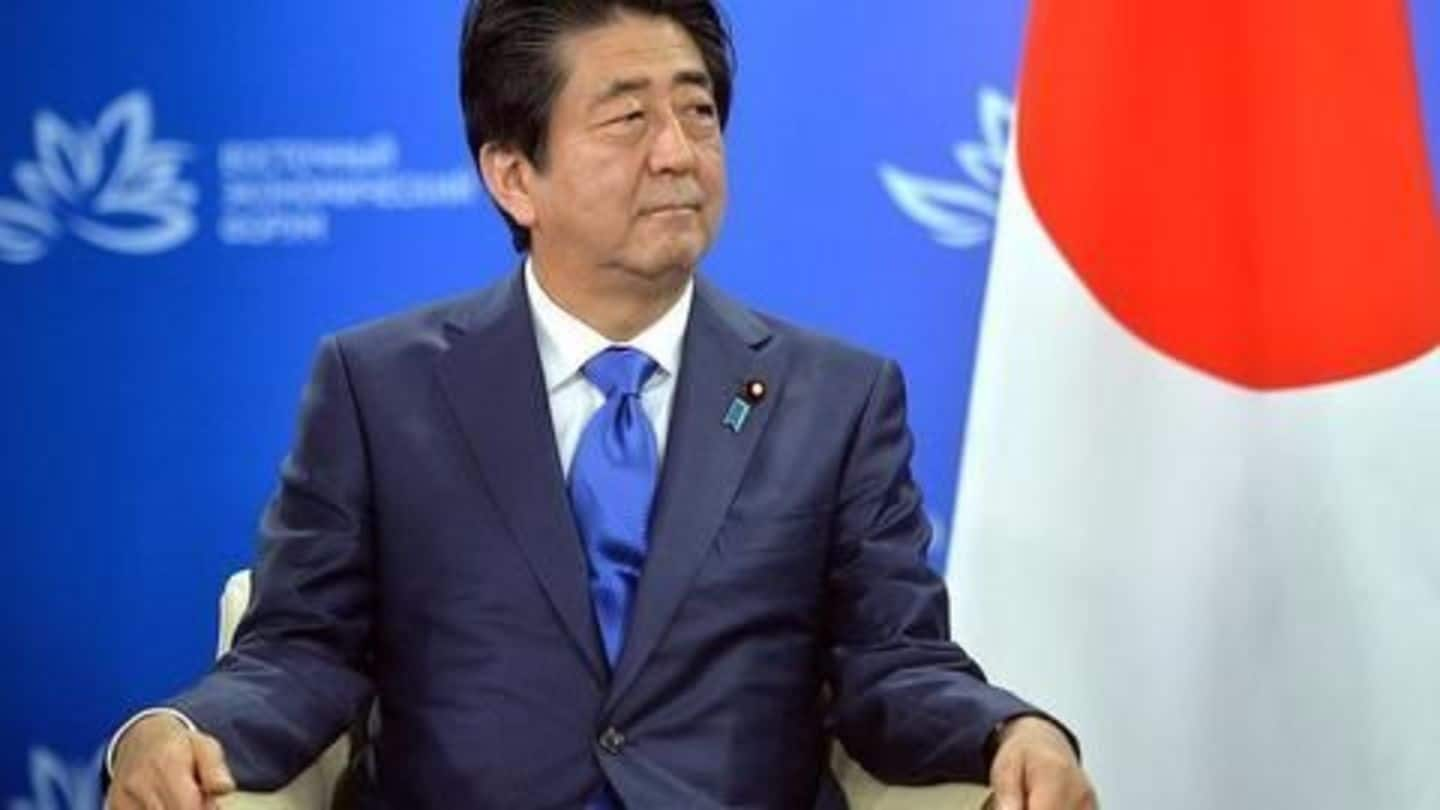
Why is PM Shinzo Abe so unpopular in Japan?
What's the story
After being seemingly unassailable since his ascension to power in 2012, Japanese PM Shinzo Abe's popularity has dipped to what political observers term 'death zone levels'.
Abe's sudden dip in popularity has resulted out of his handling of recent scandals concerning personal favouritism and is being seen as a sign of lack of confidence in his leadership.
What is Abe so unpopular in Japan?
Information
Abe's popularity hits an all time low
According to latest public opinion polls Abe's popularity is lower than 30% as he is set to be grilled by both houses of the Japanese Parliament. Abe has further been blamed for his Liberal Democratic Party's recent defeats in the Tokyo and Sendai local elections.
Context
The early rise of Shinzo Abe
After serving a short stint as PM, Abe was elected for a second term in 2012 riding on his promises to revive the Japanese economy out of a long period of stagnation.
Under Abe's leadership, Japan seemingly made a powerful comeback to the world stage, implementing decisive reforms including going back on Japan's Pacifist Constitution, enabling Japan to maintain its own defence forces.
Do you know?
Abe: The powerful face of post-war Japan
Abe became Japan's youngest PM at age 52 and the first PM to be born after World War II when a special session of the National Diet chose him in 2006. He would go on to become the longest-serving Japanese leader if re-elected in 2018.
Allegations
Why has Abe's popularity declined?
In March, Abe was accused of favouring a school with a nationalistic curriculum, contradicting Japan's bid to move away from nationalism.
Mrs. Abe who was listed as the school's 'honorary principal', apparently donated a large amount of money in her husband's name.
Recent allegations have accused Abe of misusing his powerful position to help a friend get approval for a private veterinary school.
Unpopular policies
Abe's policies ruffle feathers, popularity takes hit
Abe's popularity levels dipped as low as 37% in 2015, when he revamped Japan's defence policy allowing its troops to fight overseas for the first time since World War II.
His declared intent to move towards legitimizing the Japanese military by 2020 further ruffled feathers.
He also pushed a controversial anti-terror law in Japanese Parliament, which came under fire for possible civil liberties violations.
Information
Is Abe's government not accountable to its people?
Japanese Defence Minister Tomomi Inada was accused of covering up details on Japanese forces' participation in a sensitive peacekeeping operation in Sudan. While both Inada and the government had denied such allegations, critics cite the same as an example of the government's lack of accountability.
Conclusion
What could happen now?
Abe will most likely continue to deny allegations against him before the Parliament. However, allegations can dampen his prospects for a victory in the 2018 elections.
With loss of confidence in his leadership, he might further find it harder to exhibit the same level of political decisiveness which he did till now.
His upcoming cabinet reshuffle is further likely to be scrutinized closely.